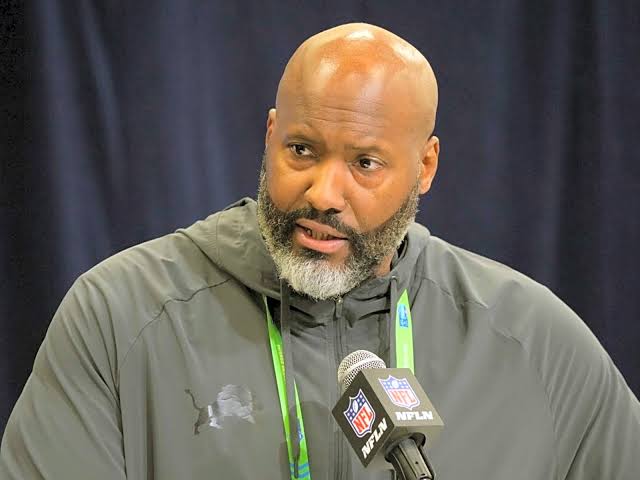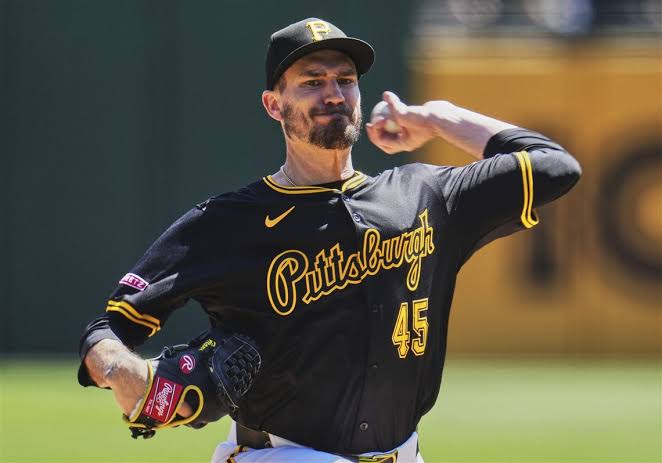When Vincent Kompany lifted the Premier League trophy as Manchester City captain for the final time in 2019, few doubted his potential for a successful transition into management. The Belgian’s leadership qualities, tactical understanding, and commanding presence made him a natural candidate for the technical area. Six years later, standing in the driving rain of Munich with the Bundesliga shield in his hands, Kompany has emphatically validated those expectations.
This past weekend marked a significant milestone in Kompany’s burgeoning managerial career as he guided Bayern Munich to reclaim the Bundesliga title from Xabi Alonso’s Bayer Leverkusen. The championship was mathematically secured following Leverkusen’s draw with Freiburg on Sunday, bringing the trophy back to Bavaria after a rare season without German football’s most coveted prize.
For Manchester City supporters watching from afar, Kompany’s success stirred a complex mixture of pride and wistful thinking. The former captain remains a beloved figure at the Etihad Stadium, his statue outside the ground a permanent reminder of his contribution to the club’s golden era. His success in management has naturally led to speculation about a potential return to Manchester – perhaps even as Pep Guardiola’s successor when that day eventually arrives.
Yet while City fans celebrate their former captain’s achievement, attention is also turning to which current players might follow Kompany’s path into management. According to one former teammate, there is a clear candidate within City’s ranks who possesses all the necessary qualities to excel in the dugout.
Back in 2017, during a light-hearted segment on Soccer AM, Leroy Sane was asked which of his Manchester City teammates had the potential to become successful managers. Without hesitation, the German winger identified his compatriot Ilkay Gundogan.
“Gundogan,” Sane responded definitively. “He is the type of player who is a very good person and has a very good character. I think he would do a really good job [as a manager].”
At the time, this assessment might have seemed premature. Gundogan was still establishing himself in Manchester following his move from Borussia Dortmund, overcoming a serious knee injury that had disrupted his first season at the club. However, in the years that followed, the midfielder would emerge as one of City’s most influential figures, eventually inheriting the captain’s armband from Fernandinho during the 2022-23 season.
Sane’s judgment now appears prescient. As Gundogan approaches the twilight of his playing career, the qualities that make him an exceptional midfielder – intelligence, composure, leadership – increasingly mark him out as a potential future manager.
Bernardo Silva, who has shared a dressing room with Gundogan for seven seasons across two clubs, has further reinforced this perception, describing the German as “the most intelligent player” he has ever played alongside. This cerebral approach to the game is often a prerequisite for successful transition into management, as demonstrated by the likes of Guardiola, Xabi Alonso, and indeed, Kompany himself.
The comparison between Kompany and Gundogan extends beyond their shared history at Manchester City. Both players distinguished themselves not only through technical excellence but also through their leadership qualities and understanding of the game’s tactical nuances.
During his time at City, Kompany was often referred to as “The Professor” by teammates and staff, a nickname that reflected his analytical approach and deep understanding of football. Similarly, Gundogan has earned a reputation as one of the most tactically astute players in European football, with Guardiola once describing him as “an incredible player in all senses.”
Both men also demonstrated a remarkable ability to rise to the occasion in decisive moments. Kompany’s thunderous strike against Leicester City in 2019 stands as one of the most important goals in City’s history, coming at a crucial juncture in that season’s title race. Three years later, it was Gundogan who produced his own moment of championship-defining magic, scoring twice in five minutes against Aston Villa to complete a remarkable comeback and secure the Premier League title on the final day of the 2021-22 season.
This capacity to perform under immense pressure is a quality that translates well to management, where the ability to make clear-headed decisions in high-stakes situations can define a coach’s career. Kompany has already demonstrated this quality during his managerial journey, from navigating the challenges of his first role at Anderlecht to steering Burnley back to the Premier League, and now in restoring Bayern Munich to their customary position at the summit of German football.
What truly distinguished Kompany during his playing days was not merely his defensive prowess but his leadership style. The Belgian led by example on the pitch while maintaining clear communication with teammates, officials, and management. His post-match interviews were articulate and thoughtful, reflecting a player who understood the game’s broader context beyond the immediate result.
Gundogan has evolved into a similar figure during his time at City and subsequently at Barcelona. Initially quiet and unassuming upon his arrival in Manchester, he gradually emerged as a vocal presence in the dressing room. By the time Guardiola handed him the captaincy for his final season at the Etihad, Gundogan had developed into a leader whose influence extended far beyond his contributions on the pitch.
The German’s communication skills have been particularly evident in his handling of media responsibilities. Whether addressing sensitive topics like racial abuse in football or explaining tactical intricacies in post-match interviews, Gundogan has consistently demonstrated the articulate, measured approach that characterizes successful managers.
This communication extends to his relationships with teammates. Younger players at both City and Barcelona have frequently cited Gundogan’s willingness to offer advice and guidance. Phil Foden, speaking in 2022, described how the German would often stay behind after training to discuss positional play and decision-making, providing the kind of mentorship that suggests a natural inclination toward coaching.
Another quality shared by Kompany and Gundogan is their tactical versatility. Throughout his career, Kompany demonstrated an ability to adapt to different systems and approaches, from the more direct football of Roberto Mancini to the possession-based philosophy of Guardiola. This adaptability has served him well in management, where he has shown a willingness to evolve his approach based on the resources at his disposal.
Gundogan’s career has followed a similar trajectory. Under Jürgen Klopp at Dortmund, he thrived as a dynamic box-to-box midfielder. At City, Guardiola initially deployed him as a deep-lying playmaker before gradually moving him into more advanced positions, culminating in his remarkable goal-scoring form during the 2020-21 and 2021-22 seasons. At Barcelona, he has once again adjusted his game, focusing more on ball circulation and positional play in Xavi’s system.
This tactical intelligence and adaptability are crucial attributes for any aspiring manager. The modern game demands coaches who can implement multiple systems and approaches, adjusting their tactics based on the opposition, available personnel, and in-game situations. Gundogan’s demonstrated capacity to understand and execute various tactical roles suggests he would bring a similar flexibility to any future managerial position.
Despite these promising indicators, the transition from playing career to successful management is far from guaranteed. Football history is littered with examples of outstanding players who struggled to translate their on-field excellence to the dugout. For every Guardiola or Zidane, there’s a Maradona or Neville whose managerial careers failed to match their playing achievements.
Kompany’s path illustrates both the challenges and potential rewards of this transition. His managerial journey began at Anderlecht, where initial struggles gave way to steady improvement as he refined his approach. At Burnley, he implemented an ambitious, possession-based style that secured promotion but proved less effective in the Premier League, leading to relegation. His appointment at Bayern represented a significant vote of confidence in his potential, despite these mixed early results.
The Belgian’s success this season vindicates that faith but also highlights the importance of finding the right environment to develop as a coach. Bayern’s resources and quality of personnel have provided Kompany with tools that weren’t available to him at Burnley, allowing him to implement his football philosophy more effectively.
For Gundogan, should he choose to follow Kompany into management, identifying the right first opportunity would be equally important. His status in the game would likely afford him more high-profile options than most first-time managers, but balancing ambition with the need for development would be crucial to long-term success.
Gundogan would be entering management at a time when former players are increasingly prominent in top-level coaching positions. In addition to Kompany, the likes of Alonso, Mikel Arteta, and Patrick Vieira have all made the transition in recent years, with varying degrees of success. This trend represents a shift from previous eras when managers often came from more modest playing backgrounds.
The success of these former players-turned-managers suggests that the modern game’s complexity and the intense scrutiny of top-level football have created an environment where recent elite playing experience can be advantageous. Understanding the pressures of modern football from a player’s perspective allows these coaches to relate more effectively to their squads while implementing the tactical approaches they’ve experienced firsthand.
For Gundogan, this trend would likely work in his favor. Having played under three of the most influential coaches of the modern era in Klopp, Guardiola, and Xavi, he has been exposed to diverse tactical philosophies at the highest level. This experience, combined with his natural leadership qualities, would provide a strong foundation for any future managerial career.
While speculation about Gundogan’s potential managerial career continues to build, the immediate focus remains on his playing career. Despite turning 35 later this year, the midfielder continues to perform at an elite level for both Manchester City and the German national team. His contract situation suggests at least one more season at the highest level before any decisions about the next phase of his career need to be made.
When that time comes, Gundogan will have multiple options to consider. His intelligence and communication skills would make him a natural fit for media roles, while his status in the game could open doors to administrative positions within clubs or governing bodies. However, if Sane’s assessment from nearly a decade ago proves accurate, the technical area may ultimately prove the most appealing destination.
As Vincent Kompany celebrates his first major trophy as a manager, his former teammate may well be taking notes from afar. The path from midfield maestro to managerial success is neither straightforward nor guaranteed, but Ilkay Gundogan appears to possess all the attributes needed to follow in the footsteps of City’s former captain.
For a club that has benefited immensely from the contributions of both men, the prospect of Gundogan one day returning to the Etihad in a coaching capacity represents an intriguing possibility for the future. Whether that scenario ever materializes remains to be seen, but as Kompany has demonstrated, the transition from playing hero to coaching success is certainly possible for those with the right qualities.
As Guardiola often reminds us, football is a game of perpetual evolution. Today’s players become tomorrow’s coaches, carrying forward the tactical innovations and leadership principles they’ve absorbed throughout their careers. If Gundogan chooses to follow this path, the intelligence, composure, and tactical acumen that have defined his playing career suggest he may well become another distinguished graduate of Manchester City’s inadvertent school of management


